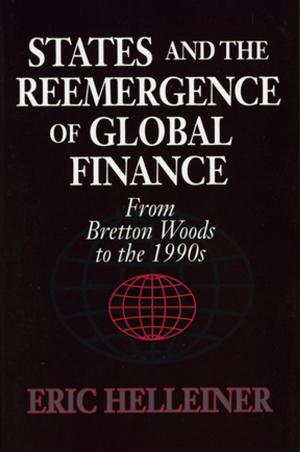Unfinished Business
Paid Family Leave in California and the Future of U.S. Work-Family Policy
Nonfiction, Social & Cultural Studies, Political Science, Politics, Labour & Industrial Relations| Author: | Ruth Milkman, Eileen Appelbaum | ISBN: | 9780801469497 |
| Publisher: | Cornell University Press | Publication: | November 15, 2013 |
| Imprint: | ILR Press | Language: | English |
| Author: | Ruth Milkman, Eileen Appelbaum |
| ISBN: | 9780801469497 |
| Publisher: | Cornell University Press |
| Publication: | November 15, 2013 |
| Imprint: | ILR Press |
| Language: | English |
Unfinished Business documents the history and impact of California’s paid family leave program, the first of its kind in the United States, which began in 2004. Drawing on original data from fieldwork and surveys of employers, workers, and the larger California adult population, Ruth Milkman and Eileen Appelbaum analyze in detail the effect of the state’s landmark paid family leave on employers and workers. They also explore the implications of California’s decade-long experience with paid family leave for the nation, which is engaged in ongoing debate about work-family policies.
Unfinished Business exposes the process by which California workers and their allies built a coalition to win passage of paid family leave in the state legislature, and lays out the lessons for advocates in other states and localities, as well as the nation. Because paid leave enjoys extensive popular support across the political spectrum, campaigns for such laws have an excellent chance of success if some basic preconditions are met.
Do paid family leave and similar programs impose significant costs and burdens on employers? Business interests argue that they do and routinely oppose any and all legislative initiatives in this area. Once the program took effect in California, this book shows, large majorities of employers themselves reported that its impact on productivity, profitability, and performance was negligible or positive.
Milkman and Appelbaum demonstrate that the California program is well managed and easy to access, but that awareness of its existence remains limited. Moreover, those who need the program’s benefits most urgently—low-wage workers, young workers, immigrants, and disadvantaged minorities—are least likely to know about it. As a result, the long-standing pattern of inequality in access to paid leave has remained largely intact.
Unfinished Business documents the history and impact of California’s paid family leave program, the first of its kind in the United States, which began in 2004. Drawing on original data from fieldwork and surveys of employers, workers, and the larger California adult population, Ruth Milkman and Eileen Appelbaum analyze in detail the effect of the state’s landmark paid family leave on employers and workers. They also explore the implications of California’s decade-long experience with paid family leave for the nation, which is engaged in ongoing debate about work-family policies.
Unfinished Business exposes the process by which California workers and their allies built a coalition to win passage of paid family leave in the state legislature, and lays out the lessons for advocates in other states and localities, as well as the nation. Because paid leave enjoys extensive popular support across the political spectrum, campaigns for such laws have an excellent chance of success if some basic preconditions are met.
Do paid family leave and similar programs impose significant costs and burdens on employers? Business interests argue that they do and routinely oppose any and all legislative initiatives in this area. Once the program took effect in California, this book shows, large majorities of employers themselves reported that its impact on productivity, profitability, and performance was negligible or positive.
Milkman and Appelbaum demonstrate that the California program is well managed and easy to access, but that awareness of its existence remains limited. Moreover, those who need the program’s benefits most urgently—low-wage workers, young workers, immigrants, and disadvantaged minorities—are least likely to know about it. As a result, the long-standing pattern of inequality in access to paid leave has remained largely intact.















